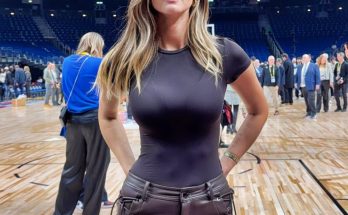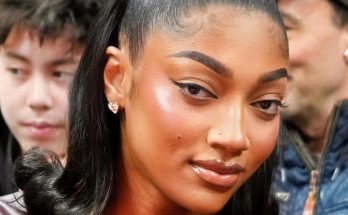The race narrative around Clark’s success has been a hotly debated topic
Caitlin Clark’s rise in the WNBA has sparked a fierce debate about her overwhelming popularity in women’s basketball, specifically from those who argue that her race has played a major role in that success.
Just last month, The Tennessean published an opinion piece by opinion columnist Andrea Williams that likened Clark’s “marketability” to that of Elvis Presley’s in the 1950s. The op-ed was revived this week when the Indianapolis Star republished the piece on Thursday.
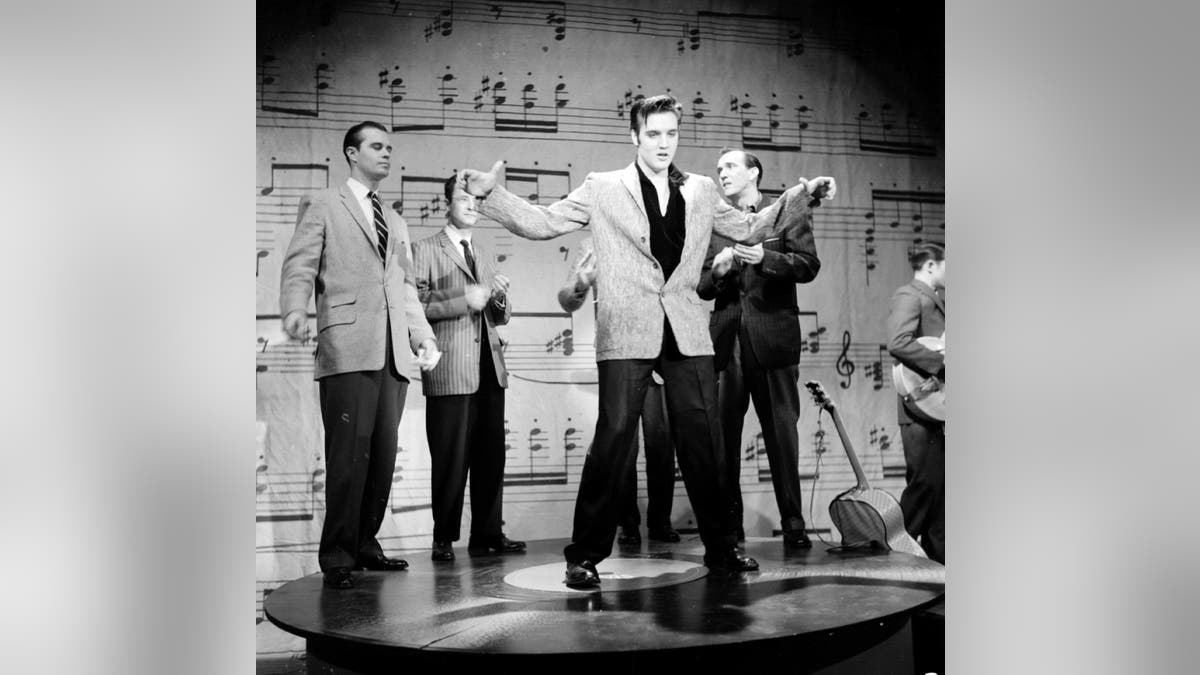
Elvis Presley performs on stage on the Ed Sullivan Show on January 6, 1957, in New York City. (Phot
Williams recalls American record producer Sam Phillips saying, “If I could find a white man who had a Negro sound and a Negro feel, I could make a million dollars.”
Phillips signed popular Black artists, like B.B. King, Little Milton and Howlin Wolf, but Williams said he saw his greatest success when he helped launch Presley’s career in 1954.
“Sam Phillips would go on to record Elvis Presley, a white man who achieved dizzying commercial success by molding his singing and dancing styles to the Black artists, both gospel and secular, who’d shaped the soundtrack of his youth,” Williams wrote.
“But Elvis’s adoption/appropriation of Blackness is less critical to his stardom than his whiteness. If that wasn’t the case, the Black artists he emulated would’ve reached similar heights themselves. Instead, in America — a predominantly white society with a very long record of white supremacist ideologies — whiteness becomes the primary standard by which all is measured and, in business, the primary market to which all products are targeted.”
Williams compared the situation to the Indiana Fever rookie, and claimed that those that have similar conversations are deemed as “race-baiters.”

Caitlin Clark, #22 of the Indiana Fever, signs autographs for fans after the game against the Chicago Sky on June 1, 2024, at Gainbridge Fieldhouse in Indianapolis, Indiana. (Jeff Haynes/NBAE via Getty Images)
“To be clear: There are others who have addressed the enduring marketability of whiteness. They’ve spoken to the media’s prior refusal to push the WNBA with the same fervor it’s had this year. They’ve also mentioned the fact that, before A’ja Wilson’s recently announced Nike deal, no Black WNBA player has had a signature shoe with a major brand since Candace Parker in 2010-11.”
She later added, “So instead of learning from this moment and having real-time conversations about the intersection of race, gender, and sports in America, those of who know better end up screaming into an empty, useless void while everyone else holds fast to their unfounded, ahistorical views.”
Just last month, Las Vegas Aces star A’ja Wilson said during an interview with The Associated Press that race was a factor in Clark’s stardom.
“I think it’s a huge thing. I think a lot of people may say it’s not about Black and White, but to me, it is,” Wilson said. “It really is because you can be top-notch at what you are as a Black woman, but yet maybe that’s something that people don’t want to see.”
“They don’t see it as marketable, so it doesn’t matter how hard I work. It doesn’t matter what we all do as Black women, we’re still going to be swept underneath the rug. That’s why it boils my blood when people say it’s not about race, because it is.”
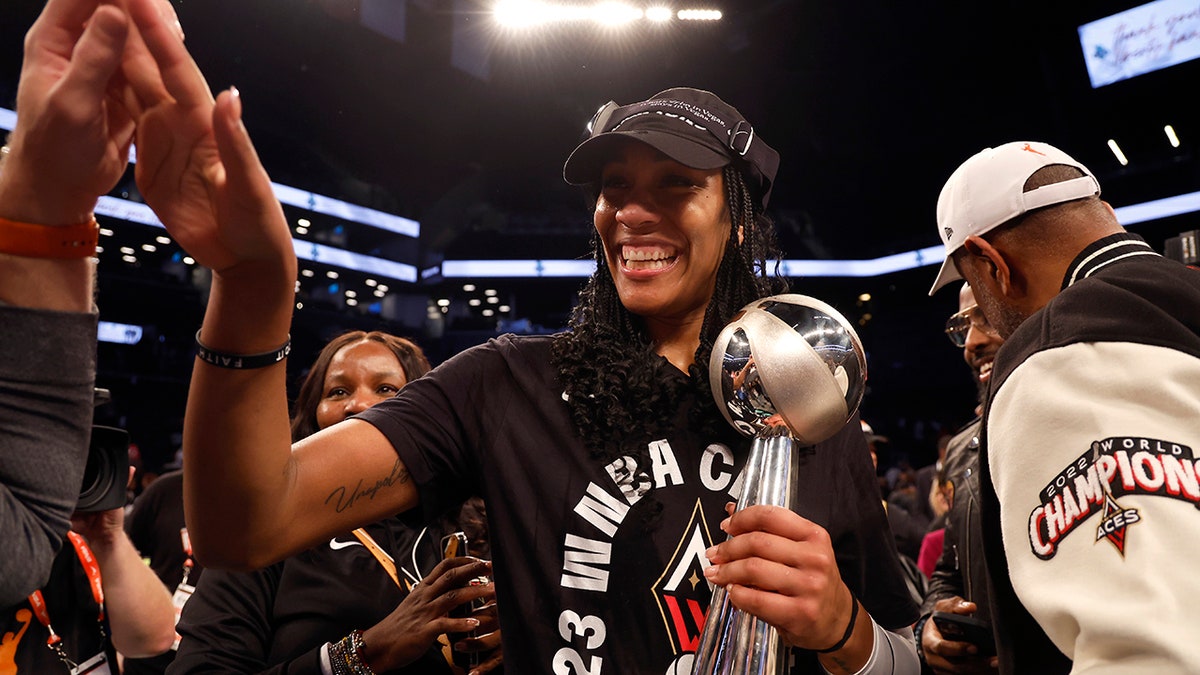
A’ja Wilson, #22 of the Las Vegas Aces, celebrates with the MVP trophy after defeating the New York Liberty during Game Four of the 2023 WNBA Finals at Barclays Center on October 18, 2023, in New York City. The Aces defeated the Liberty 70-69. (Sarah Stier/Getty Images)
Other notable sports figures have spoken on issue, like Hall of Famer Charles Barkley, who has called out what he said is “petty nonsense.” He doubled down on his stance in a recent appearance on OutKick’s “Don’t @ Me with Dan Dakich.”
“They act like she didn’t earn it. The woman just scored the most points ever by a man or a woman. ‘She’s only getting this job because she’s White.” Is race a factor? Yes, race is a factor. But her résumé speaks for itself. . . . They didn’t prop her up just because she’s White,” Barkley said.
Others, like LeBron James, have also spoken up about Clark’s success in the league.
“The one thing that I love that she’s bringing to her sport: more people want to watch. More people want to tune in. I saw, for the first time, they had a chartered plane. For the first time in their league history, they flew private. That should be celebrated in its own right,” he said.
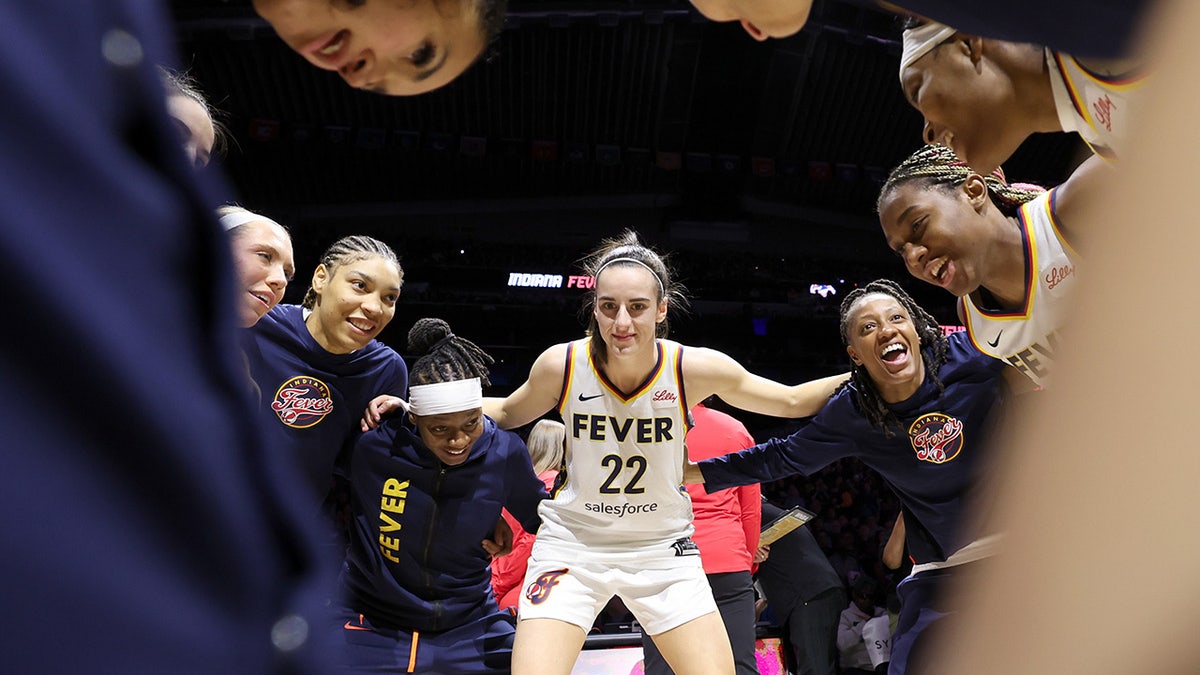
Caitlin Clark, #22 of the Indiana Fever, huddles with teammates prior to a game against the Seattle Storm in the game at Climate Pledge Arena on May 22, 2024, in Seattle, Washington. (Steph Chambers/Getty Images)
“That should be celebrated, and it’s because of Caitlin Clark. Don’t get it twisted. Don’t get it f—ed up. Caitlin Clark is the reason why a lot of great things are going to happen for the WNBA.”
For her part, Clark has said that she believes more attention on the league will bring more opportunities to the women’s game.
“It doesn’t need to be just one or two players, and I think that even goes back to college. The parity in women’s basketball is what’s making more people want to come watch it. I think the more we can spread the love, show people, show their talent, show their teams — that’s just going to continue to elevate it,” she said last month.

